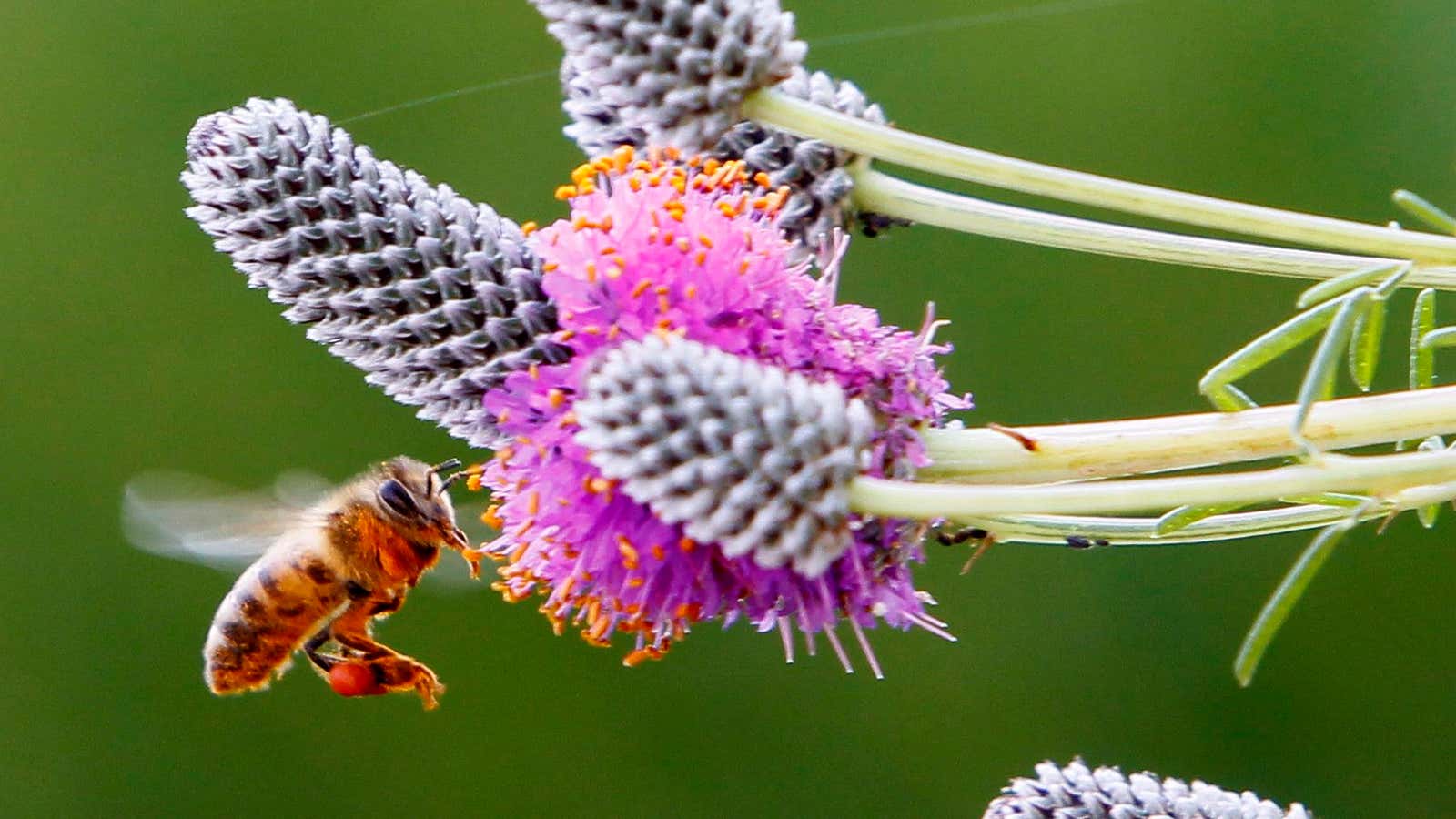Here’s another reason to buy an electric car: Automotive exhaust interferes with honey bees’ ability to find flowers and pollinate the crops that the world depends on for much of its food supply, according to a new study.
The new findings are the latest in a string of recent reports identifying culprits in the global collapse of bee populations over the past six years. Everything from a toxic mix of pesticides to a dearth of wildflowers has been blamed for the sudden death of entire bee hives, an affliction known as Colony Collapse Disorder. But there’s a common denominator in much of the research: Humanity’s growing dependence on evermore potent pesticides and its continued pollution of the planet threatens to unravel the web of life in unforeseen ways.
The study from the UK’s University of Southampton adds a worrying new wrinkle to the mystery of beemegeddon. Bees depend in part on their ability to smell floral aromas, which helps them locate flowers from which to collect pollen. That pollen feeds the hive, the health of which is critical to the pollination of crop worth an estimated $248 billion worldwide.
The scientists taught honey bees in the laboratory to recognize a blend of eight floral chemicals synthesized from rapeseed. Then they added diesel exhaust to that aroma in various concentrations, including at levels consistent with environmental health standards in Europe and the US. “Within one minute of exposure the abundances of four of the chemicals were significantly lowered, with two components rendered undetectable,” wrote the researchers led by Tracey Newman and Guy Poppy. “Honeybees were trained to recognize the full synthetic odor mix; altering the blend, by removing the two chemicals rendered undetectable, significantly reduced the ability of the trained honeybees to recognize the altered odor.”
“Honeybees have a sensitive sense of smell and an exceptional ability to learn and memorize new odors, enabling them to use floral odors to help locate, identify and recognize the flowers from which they forage,” the scientists added. “There is a huge diversity of floral odors, therefore any disruption to these blends could impact upon the ability of plants to communicate with their pollinators.”
It’s not just diesel-belching trucks and increasingly popular fuel-efficient diesel cars that bear the blame. The researchers also tested the impact of nitrogen dioxide (NOx), a component in the exhaust that spews from gasoline-powered vehicles. When the scientists exposed the bees to levels of NOx emissions permitted by European and US regulators for humans, their ability to detect four of the eight components of the rapeseed mix declined.
The UK scientists acknowledged that their small study does not directly link such exposures to the colony collapse phenomenon. “However, while our comprehension of how these factors impact directly upon honeybee health is advancing, additional as yet undiscovered mechanisms are likely to be involved in honeybee declines,” they cautioned.
In other words, prepare yourself for more bad bee news.
